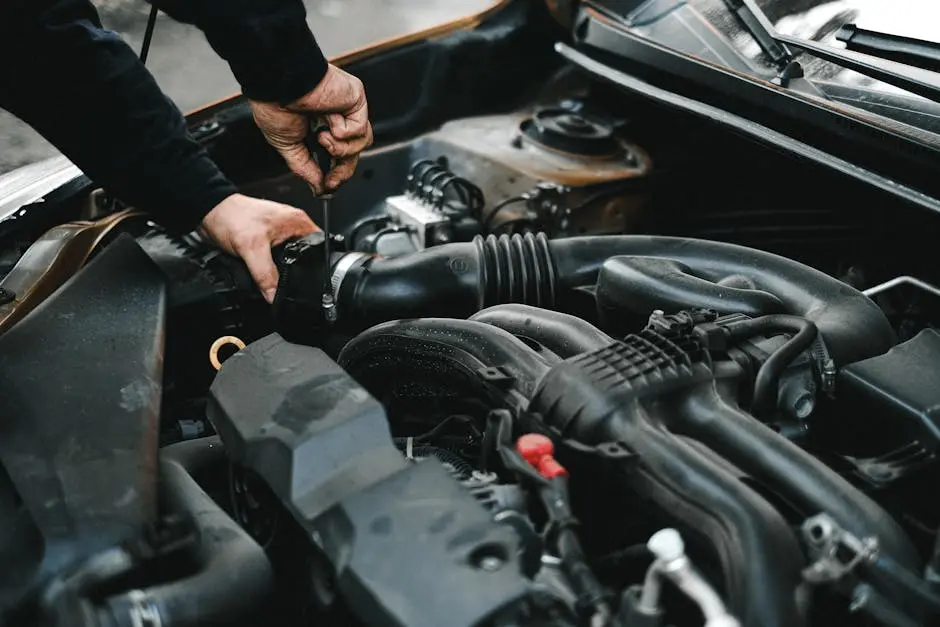The Importance of Bearing Maintenance for Engine Longevity
Proper maintenance of bearings is crucial for ensuring the longevity of any engine. Bearings play a pivotal role in reducing friction, supporting loads, and enhancing the overall performance of engine components. By delving into the importance of bearing maintenance, we can better understand how it contributes to the durability and efficiency of engines. Let's explore the key aspects of bearing maintenance and its impact on engine longevity.
Understanding Bearings and Their Role in Engines
Bearings are critical components that support rotating parts within an engine. Understanding their function and types is the first step in appreciating their importance.
In essence, bearings serve as the unsung heroes of the mechanical world, quietly absorbing forces and allowing for smooth operation. They come in different varieties, including ball bearings and roller bearings, each tailored to withstand various types of loads. Knowing which type of bearing is used in your engine can lead to better maintenance practices, ensuring they perform at their best.
Moreover, bearings are essential for reducing friction between moving parts. When friction is minimized, heat generation is reduced, which means that the engine can operate more efficiently. This directly affects fuel consumption, performance, and overall engine lifespan. So, the next time you think about your engine, remember these small components that play a massive role in your vehicle's efficiency.
Common Issues Caused by Neglected Bearing Maintenance
Neglecting bearing maintenance can lead to a variety of issues, including increased friction, overheating, and total engine failure.
When bearings are allowed to deteriorate without proper care, the repercussions can be severe. For instance, a lack of lubrication may cause bearings to wear faster than expected, leading to metal-on-metal contact. This not only creates more friction but can result in bearings seizing altogether. Imagine the frustration of an engine shutdown during a road trip due to something so preventable!
Additionally, other symptoms can manifest, such as vibrations that seem out of place or odd noises that weren't there before. Each of these signs may indicate that your bearings are no longer working effectively, and putting off maintenance could lead to cascading failures in your engine. By regularly checking and maintaining your bearings, you can easily avert such experiences.
Routine Maintenance Practices for Bearings
Implementing a routine maintenance schedule that includes inspections, lubrication, and replacements can significantly enhance bearing performance.
Routine maintenance opens the door to discovering potential issues before they become critical. Regularly inspecting each bearing for signs of wear or damage is essential. With a little practice, these inspections can reveal much about the overall health of your engine. Additionally, incorporating lubrication as per the manufacturer’s recommendations plays a critical role in ensuring that bearings remain well-hydrated and protected from wear.
Furthermore, documenting your maintenance activities allows you to track patterns that may arise over time. If a particular bearing seems to require more attention than others, you can address that specifically. Remember, consistent and proactive maintenance ensures that bearings operate smoothly, leading to enhanced longevity not just of the bearings but the entire engine.
Signs Your Bearings Need Attention
Being able to identify signs of wear and tear in bearings, such as unusual noises or vibrations, can help catch problems before they escalate.
Listening carefully to your engine's sounds can be revealing. If your once-quiet engine starts to emit odd clattering or grinding noises, it might be time to examine those bearings. Vibration while in operation is another significant sign that something may be off. Unlike the smooth hum of a well-functioning engine, excessive vibration can point directly to bearing issues.
Keep an eye on engine temperatures as well. If your engine seems to be running hotter than usual, it could be due to friction caused by failing bearings. Addressing these indicators promptly will protect your engine and help maintain its performance, as early detection often leads to simpler, lower-cost repairs.
The Long-Term Benefits of Bearing Maintenance
Investing time and resources into proper bearing maintenance not only extends engine life but also improves overall performance and fuel efficiency.
Long-term, consistent bearing maintenance can yield significant benefits. As your engine operates more efficiently, you can enjoy lower fuel costs and contribute to a reduced environmental footprint. After all, a well-maintained engine is not just good for your wallet but good for the planet. Moreover, it ensures a smoother, more enjoyable driving experience.
When you prioritize bearing maintenance, you're also protecting your investment in your vehicle. Engines are costly to replace or repair, and understanding the link between bearing care and engine performance means you’re taking steps to avoid those expensive pitfalls. Over the lifetime of your vehicle, these practices can add incredible value, allowing you to use your vehicle for years beyond its anticipated life.
Wrapping Up: Protecting Your Engine Through Bearing Care
In conclusion, regular bearing maintenance is an essential component in prolonging the life of your engine. By taking proactive steps to monitor and care for your bearings, you can not only avoid costly repairs but also enjoy a more efficient and reliable running machine. Remember, a little attention goes a long way in keeping your engine at peak performance.

